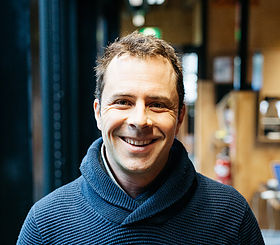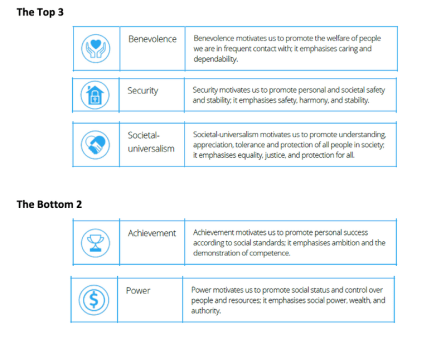
After seven years running a business that advises federal, state and local government on event strategy, Stu Speirs writes that it’s time to revisit the reason governments invest in events.

Without exception, the event strategy and evaluation briefs that come my way are framed with economic impact as the primary objective – the focus being on bringing in visitors to spend money on local businesses.
In other words, the primary objective is focused on the outsider, not the community.
In these briefs, mentions of impacts on social capital and civic pride are made, but with little or no weight.
There’s seemingly no compulsion to understand these impacts in any depth, let alone measure them.
So how did we get to the point where economic impact is the primary metric?
With major events long having been seen as part of the wider tourism equation, it’s not difficult to see how that came to be the case.
In Victoria, the laser-like focus on visitation by state and local government can be attributed back to the mandate given to the Victorian Major Events Company (VMEC) when it was created in 1991.
That mandate was: “To identify and pursue major events that are seen to bring economic, broadcast/media exposure, cultural and social benefits to the state of Victoria.”
In subsequent years, the VMEC went on describe itself as “the world’s leading event acquisition group”. That philosophy of acquisition rings true today within the walls of Visit Victoria, and by extension, filters down to how it partners with local government when it comes to events.
Disconnect
But there’s a significant disconnect there.
Generally speaking, local councils simply don’t have the financial resources to take an acquisition approach to event investment, yet this is what their state-based body demands of them.
To illustrate the outcome of this acquisition approach, it is noteworthy that Melbourne’s events calendar does not include a major recurring event that was not in place before the advent of the VMEC in 1991.
That’s not to say that the VMEC approach is right or wrong, it simply serves to highlight that if adding recurring sustainable place-based events to an annual event calendar is a core objective, then the Visit Victoria approach of event acquisition is not the one to pursue.
Beyond the historical context of why government invests in events, the simpler explanation as to why economic impact is the metric we prioritise is that it’s the easiest to measure and understand.
We implicitly understand dollar signs. We don’t implicitly understand metrics that measure things like collective wellbeing and social equity.
So again, why do we come back to economic impact as our core measure of success when it comes to events?
Not because it’s the most important of the impacts, but because it’s easy. Because we’ve become lazy. Because it’s always been that way.
Values project
In 2018 the University of WA and market researchers Pure Spectrum teamed up to undertake The Values Project. A 20-year longitudinal study, it is designed to drill down into what it is that Australians value most.
Underpinned by the globally recognised Schwartz’s Theory of Basic Values, this study is examining in great depth what Australians value most in their lives.
Done in collaboration with a host of international experts on the subject, it’s an impressive undertaking in its breadth and scale. In the initial findings from the first part of the quantitative research (n=7,461 for the research boffins playing at home) was released in 2019.
By way of very brief summary, the study tested the extent to which Australians valued what are considered to be 11 universal values.

In simple terms, the social equity and civic pride outcomes clearly sit underneath the top three values of Benevolence, Security and Societal-universalism, whilst economic impact outcomes align most closely with the values of Achievement and Power.
If economic impact from events is a subset of the two values Australians prioritise the least, then why do our governments focus on it when investing in events?
Equally, when values of Benevolence, Security and Societal-Universalism are seen by Australians as our most important, why then does the measurement of metrics such as civic pride and collective identity get little to no weight?
At a macro-level, the importance of measuring things alongside the classic measure of GDP is increasingly being recognised.
The New Zealand, Tasmanian and Australian governments have all delivered “wellbeing budgets” in recent times.
To that end, it’s time we in the world of events did the same.
Regenerative tourism
At a sector level, thanks to the work of visionary tourism strategists like Dianne Dredge, Carolyn Childs, Claire Ellis and Anna Pollock, we are questioning the fundamental assumptions of tourism as we know them.
As the regenerative tourism movement builds momentum alongside the recognition of broad wellbeing measures, it is time we ask ourselves where events sit within that movement.
For the government sector, event acquisition – for example Newcastle securing Elton John concerts, Melbourne securing State of Origin matches – rightly sits in the ‘economic development’ bucket. That should be the exception though, not the rule.
It is time for our governments to stop seeing events as part of “tourism and economic development”, and start seeing them first and foremost as contributors to community wellbeing.
After all, that’s what our communities are telling us they value most.
*Stu Speirs is director of SilverLining Strategy
Comment below to have your say on this story.
If you have a news story or tip-off, get in touch at editorial@governmentnews.com.au.
Sign up to the Government News newsletter